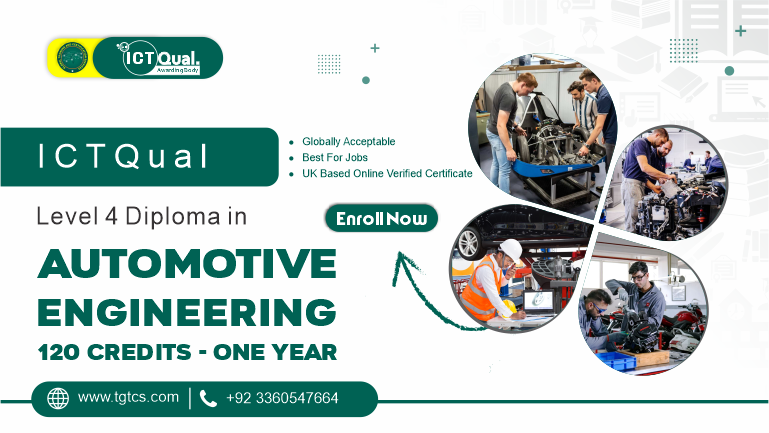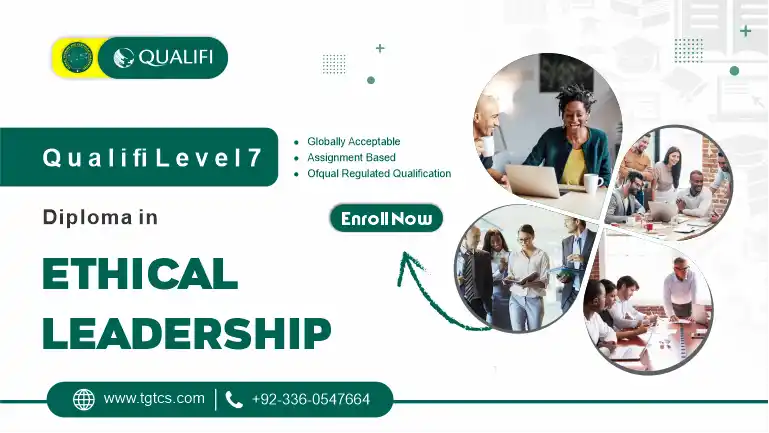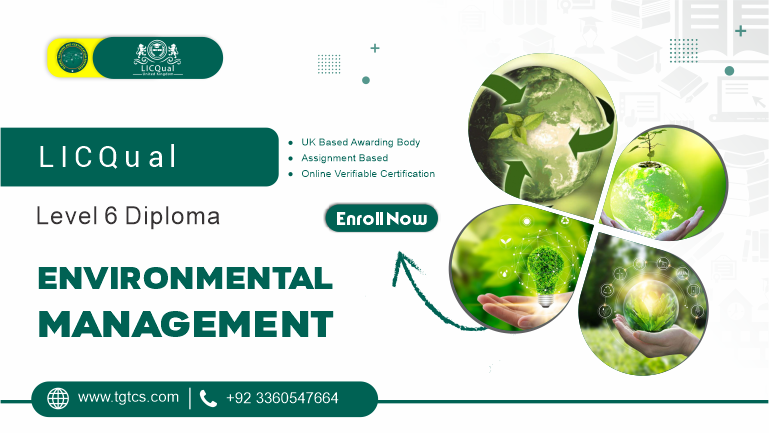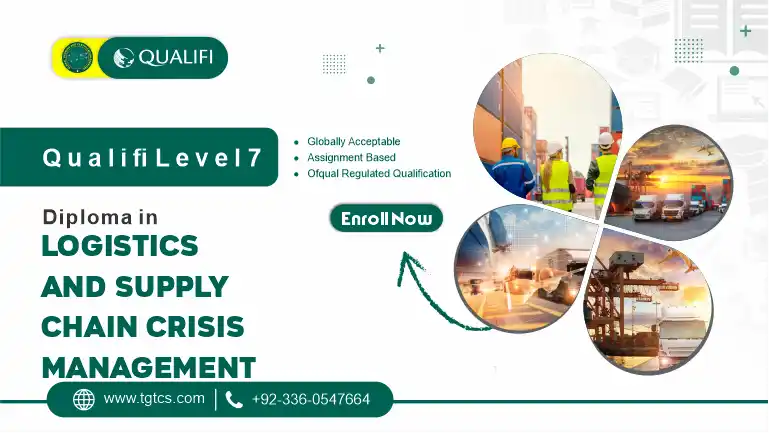ICTQual Level 4 Diploma in Automotive Engineering 120 Credits – One Year
The ICTQual Level 4 Diploma in Automotive Engineering is designed to equip students with the technical skills and knowledge required to succeed in the automotive industry. This comprehensive one-year program provides a deep understanding of automotive engineering principles, advanced vehicle technology, and modern industry practices, preparing graduates for high-demand roles in the rapidly evolving automotive sector.
Whether you’re aiming to work on electric vehicles, autonomous driving technologies, or cutting-edge automotive systems, this diploma will equip you with the advanced technical expertise required to succeed in a competitive job market.
The automotive industry is undergoing a transformative shift, with electric and autonomous vehicles leading the charge. Completing the ICTQual Level 4 Diploma in Automotive Engineering will put you at the forefront of this revolution, preparing you for a rewarding career that involves innovation and cutting-edge technology.
The ICTQual Level 4 Diploma in Automotive Engineering provides the skills and knowledge necessary to thrive in the automotive industry. Whether you’re looking to enhance your career prospects or specialize in cutting-edge vehicle technologies, this program will help you unlock new opportunities.
The Global Training and Certification Services (TGTCS) is Directly Approved Training Centre of ICTQual
The ICTQual Level 4 Diploma in Automotive Engineering is a comprehensive, one-year program designed to equip learners with the advanced technical skills and knowledge necessary for a successful career in the automotive industry. This 120-credit course covers a wide range of topics, including vehicle systems diagnostics, automotive design and manufacturing, electric and hybrid vehicle technologies, vehicle safety, and sustainability practices. Students will gain hands-on experience with the latest automotive technologies, preparing them for roles such as automotive engineer, vehicle systems technician, electric vehicle engineer, and automotive design engineer.
This diploma opens up a variety of career pathways in automotive manufacturing, repair, research, and project management. With a focus on both traditional and cutting-edge technologies, graduates will be well-equipped to meet the demands of a rapidly evolving automotive sector.
Mandatory Units
The Units of Level 4 Diploma in Automotive Engineering 120 Credits – One Year are as ;
- Vehicle Systems and Components
- Automotive Electrical and Electronic Systems
- Vehicle Diagnostics and Fault Finding
- Hybrid and Electric Vehicle Technologies
- Automotive Engine Design and Performance
- Automotive Materials and Manufacturing Processes
- Vehicle Safety and Crash Testing
- Automotive Fuel Systems and Emissions Control
- Automotive Air Conditioning and Climate Control Systems
- Automotive Project Management
- Advanced Vehicle Technology and Autonomous Systems
- Automotive Industry Regulations and Standards
To enroll in the ICTQual Level 2 Diploma in Automotive Engineering, candidates must meet the following entry requirements:
- Vehicle Systems and Components
- Understand the key components of automotive systems, including the engine, transmission, suspension, braking, and steering systems.
- Explain the functioning of each system both individually and as part of the vehicle’s overall operation.
- Analyze how the interdependencies between various vehicle systems impact performance, safety, and efficiency.
- Automotive Electrical and Electronic Systems
- Demonstrate an understanding of automotive electrical circuits, including wiring, battery systems, and control units.
- Assess the role of electronics in vehicle control systems, such as sensors, actuators, and safety features.
- Use diagnostic tools to identify faults within electrical and electronic systems and troubleshoot wiring and components.
- Vehicle Diagnostics and Fault Finding
- Identify common faults in vehicle systems, including engine management, electrical, and mechanical components.
- Utilize automotive diagnostic tools to perform fault diagnoses and recommend repairs.
- Evaluate diagnostic reports to identify underlying issues affecting vehicle performance and safety.
- Hybrid and Electric Vehicle Technologies
- Understand the design and operation of hybrid and electric vehicles, including components such as batteries, drivetrains, and electric motors.
- Compare the technologies behind electric and hybrid vehicles to those of traditional internal combustion engine vehicles.
- Assess the maintenance needs of hybrid and electric vehicles, including battery management systems and charging infrastructure.
- Automotive Engine Design and Performance
- Analyze the design principles of internal combustion engines, including performance characteristics, fuel systems, and exhaust systems.
- Evaluate engine performance using metrics such as power output, fuel efficiency, and emissions.
- Apply tuning techniques to optimize engine performance in line with industry standards for efficiency and emissions.
- Automotive Materials and Manufacturing Processes
- Identify and describe the materials used in vehicle construction, including metals, composites, and polymers.
- Understand manufacturing processes involved in vehicle production, such as casting, welding, and assembly.
- Evaluate the role of material selection in vehicle safety, performance, and cost-effectiveness.
- Vehicle Safety and Crash Testing
- Understand the principles of vehicle safety design, focusing on passive and active safety features such as airbags, seatbelts, and stability control systems.
- Analyze crash testing procedures and their role in improving vehicle safety standards.
- Assess the performance of safety systems in real-world accident scenarios and their regulatory compliance.
- Automotive Fuel Systems and Emissions Control
- Understand the operation of automotive fuel systems, including carburetors, fuel injectors, and pumps.
- Examine the environmental impact of vehicle emissions and evaluate emissions control technologies, such as catalytic converters and exhaust gas recirculation.
- Apply knowledge of fuel systems and emissions control to ensure regulatory compliance and reduce environmental impact.
- Automotive Air Conditioning and Climate Control Systems
- Understand the principles of automotive air conditioning systems, including refrigerants, compressors, condensers, and evaporators.
- Diagnose faults and perform maintenance on air conditioning and climate control systems.
- Evaluate energy-efficient technologies in automotive HVAC systems, such as eco-friendly refrigerants and alternative cooling methods.
- Automotive Project Management
- Apply project management principles to automotive engineering projects, including scheduling, resource allocation, and cost estimation.
- Use project management tools and software to track project progress and ensure quality control.
- Effectively manage automotive engineering projects, ensuring deadlines and budgets are met while maintaining high-quality standards.
- Advanced Vehicle Technology and Autonomous Systems
- Understand the principles behind autonomous driving technologies, including sensors, machine learning, and data processing.
- Examine the levels of autonomy in vehicles and their associated benefits and challenges.
- Assess the impact of advanced vehicle technologies on safety, regulations, and industry standards.
- Automotive Industry Regulations and Standards
- Understand the legal and regulatory frameworks governing the automotive industry, including safety standards, emissions regulations, and homologation requirements.
- Evaluate how industry standards, such as ISO certifications, influence vehicle design, manufacturing, and safety.
- Assess the importance of regulatory compliance to ensure the safety, sustainability, and marketability of vehicles.
The ICTQual Level 2 Diploma in Automotive Engineering offers a comprehensive foundation for those looking to enter the automotive industry or enhance their existing skills. Here are the key benefits of completing this course:
- In-Depth Knowledge of Automotive Systems
- Gain a thorough understanding of various automotive systems, including engines, transmission, suspension, and braking systems.
- Learn to diagnose and troubleshoot faults in both mechanical and electrical vehicle components, ensuring enhanced problem-solving capabilities in real-world scenarios.
- Hands-On Skills Development
- Develop practical skills through engaging with vehicle systems and diagnostics tools, preparing you for real-world repair and maintenance tasks.
- The course emphasizes hands-on experience, providing learners with the tools and confidence needed to work on a wide range of vehicles.
- Understanding of Emerging Technologies
- Learn about hybrid and electric vehicle technologies, positioning you at the forefront of industry trends.
- Understand the operation and maintenance of modern vehicle technologies, such as electric drivetrains and advanced automotive electronics, which are becoming increasingly essential in the automotive industry.
- Enhanced Job Opportunities
- This diploma equips you with the qualifications necessary for a wide range of roles in the automotive industry, including vehicle technician, automotive electrician, and diagnostic technician.
- You’ll gain the skills required by employers in automotive repair shops, car dealerships, and manufacturing companies, improving your career prospects.
- Exposure to Industry Standards and Safety Regulations
- The course covers important regulatory frameworks and safety standards, ensuring you understand the legal and compliance requirements in automotive engineering.
- Learn about vehicle safety designs, emissions control, and crash testing, ensuring that you are prepared to work on vehicles that meet industry and legal standards.
- Preparation for Further Education and Career Advancement
- The Level 2 Diploma provides a solid foundation for those wishing to pursue further qualifications in automotive engineering, including Level 3 and higher certifications.
- Students can also opt for specializations, such as advanced diagnostics, hybrid vehicle systems, or automotive project management, to further enhance career growth.
- Versatility in the Job Market
- With a comprehensive understanding of vehicle diagnostics, repair, and maintenance, you will be qualified to work across multiple sectors of the automotive industry.
- The course provides you with a wide skillset, allowing you to take on various roles in automotive service centers, dealerships, or even independent repair businesses.
- Technical Proficiency in Automotive Technology
- Develop expertise in both traditional and modern automotive systems, from conventional internal combustion engines to hybrid and electric vehicle systems.
- Learn to work with advanced diagnostics tools and systems, giving you the technical edge needed to handle complex automotive technologies.
- Career Flexibility and Job Security
- The automotive sector is an essential industry that continues to grow, providing job security for skilled professionals.
- With the rapid development of new vehicle technologies, automotive engineers and technicians are in high demand, ensuring that your skills remain relevant and in demand.
- Networking and Professional Development
- Completing the ICTQual Level 2 Diploma in Automotive Engineering opens up opportunities for networking within the automotive industry.
- Engaging with industry standards and best practices ensures that you are connected to a network of professionals and organizations that can support your career growth.
By completing this diploma, you not only gain essential automotive engineering knowledge but also unlock a wide range of career and educational opportunities, preparing you for success in the dynamic automotive industry.
The ICTQual Level 2 Diploma in Automotive Engineering is designed for individuals who are passionate about vehicles and interested in pursuing a career in the automotive industry. The ideal learner for this course will have the following characteristics:
- Passionate About Vehicles and Engineering
- A strong interest in how vehicles work, including understanding the mechanics and electronics that power modern transportation.
- Enthusiasm for solving problems and improving the performance of automotive systems, whether it’s diagnosing faults or optimizing vehicle performance.
- Aspiring Automotive Technicians or Engineers
- Ideal for individuals looking to start their career as automotive technicians, mechanics, or engineers.
- A desire to build a solid foundation in automotive engineering principles and apply them in a hands-on, practical environment.
- No Prior Experience Required
- This course is suitable for beginners or those with minimal experience in automotive technology.
- Individuals looking to enter the field of automotive engineering and develop the necessary skills to pursue various roles within the industry.
- Keen on Working with Modern Automotive Technologies
- Those who are eager to learn about emerging technologies such as hybrid and electric vehicles, and want to stay up-to-date with innovations in the automotive sector.
- Learners who are interested in working with the latest vehicle diagnostic systems, electronic components, and sustainable automotive technologies.
- Hands-On Learners
- The ideal learner enjoys practical, hands-on learning and is excited to work directly with vehicles, tools, and diagnostic equipment.
- Students who thrive in environments where they can apply theory to real-world scenarios and perform tasks like fault diagnosis and vehicle repair.
- Detail-Oriented and Analytical
- Learners should be able to pay attention to detail, as automotive engineering requires precision and accuracy in diagnosing problems and carrying out repairs.
- Ideal for those who enjoy troubleshooting, analyzing vehicle systems, and finding solutions to complex mechanical and electrical issues.
- Motivated and Career-Focused
- This course is perfect for those who are committed to building a long-term career in the automotive industry.
- Learners should be focused on improving their skills to secure employment in various automotive roles, whether in repair shops, dealerships, or manufacturing companies.
- Willing to Pursue Further Education or Certification
- Those who see this diploma as a stepping stone to further education, such as progressing to a Level 3 Diploma in Automotive Engineering or specialized certifications.
- Learners with a goal of continuous professional development and advancing their qualifications to take on more advanced or managerial roles within the automotive sector.
- Strong Problem-Solving and Critical Thinking Skills
- Ideal for those who enjoy overcoming challenges and using analytical skills to troubleshoot and fix mechanical or electrical faults in vehicles.
- A good fit for learners who approach problems methodically, using available tools and resources to find solutions.
Progression Routes
Upon completing the ICTQual Level 4 Diploma in Automotive Engineering, graduates will be equipped with the essential skills and knowledge to pursue various career opportunities within the automotive sector or further their studies. The program provides a strong foundation for advanced roles in vehicle design, maintenance, project management, and offers the chance to specialize in cutting-edge automotive technologies.
Here are some potential progression options for graduates of the ICTQual Level 4 Diploma in Automotive Engineering:
1. Entry into the Automotive Industry
Graduates can enter a range of technical and engineering roles within the automotive industry, such as:
- Automotive Technician/Engineer: Work on vehicle systems, including diagnostics, repairs, and maintenance. Opportunities exist in automotive repair shops, dealerships, and maintenance facilities.
- Diagnostic Specialist: Specialize in diagnosing and troubleshooting vehicle faults using advanced diagnostic tools and systems.
- Vehicle Design Engineer: Contribute to the design and development of vehicles, focusing on engine performance, safety features, aerodynamics, and integrating new technologies.
- Workshop Manager/Supervisor: Oversee daily repair and service operations, ensuring efficiency, quality control, and compliance with industry standards.
- Electric and Hybrid Vehicle Specialist: Work with advanced propulsion systems, battery technologies, and vehicle electrification in the rapidly growing electric and hybrid vehicle market.
2. Further Study and Specialization
Graduates interested in advancing their qualifications or specializing in specific automotive engineering fields can pursue the following educational options:
- ICTQual Level 5 or Level 6 Diplomas: Continue studies with higher-level qualifications that focus on specialized areas such as vehicle design, autonomous systems, or advanced vehicle manufacturing.
3. Professional Certifications and Industry Recognition
Graduates can enhance their career prospects by pursuing various industry-recognized certifications and accreditations, such as:
- Certified Automotive Technician (ATA): Obtaining certification from recognized bodies like the Institute of the Motor Industry (IMI) can improve job opportunities and career progression.
- Electric Vehicle (EV) Specialist Certification: As the demand for electric vehicles grows, gaining certifications in EV maintenance, battery systems, and charging infrastructure will make graduates specialists in this emerging field.
- Project Management Certification: Graduates interested in managerial roles can pursue qualifications such as PRINCE2 or PMP to enhance their skills in leading automotive projects.
4. Entrepreneurship and Self-Employment
With the expertise gained in the ICTQual Level 4 Diploma, graduates may choose to start their own automotive-related businesses or services, including:
- Automotive Repair Shop Owner: Start a service center specializing in vehicle diagnostics, repairs, and maintenance.
- Mobile Auto Repair Business: Provide on-site repair and maintenance services to customers at their convenience.
- Vehicle Customization or Restoration: Specialize in custom car builds or the restoration of classic vehicles, including engine tuning, interior modifications, and vehicle aesthetics.
5. Working in the Research and Development (R&D) Sector
Graduates with a solid understanding of advanced automotive technologies can move into research and development roles, contributing to the innovation of next-generation vehicles. Potential roles include:
- Research Engineer: Focus on developing new automotive technologies such as electric drivetrains, smart vehicle systems, and autonomous driving solutions.
- Test Engineer: Conduct testing on new automotive systems to ensure they meet safety, performance, and regulatory standards before production.
6. Opportunities in Emerging Technologies
With rapid advancements in autonomous vehicles, AI, and sustainable automotive technologies, graduates are well-positioned to contribute to these innovative sectors. Potential roles include:
- Autonomous Vehicle Systems Engineer: Work on developing and implementing technologies for self-driving cars, including sensors, AI algorithms, and vehicle-to-vehicle communication.
- Sustainability Specialist: Focus on creating environmentally friendly automotive technologies, such as electric vehicles (EVs), hydrogen fuel cells, and low-emission solutions.
Course Overview
Course Level
Level 4
Course Units
12 Mandatory Units
Duration
one year






